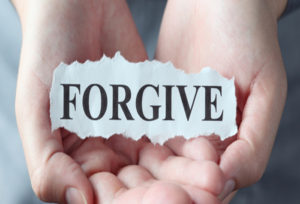
As I write this article, I like you, am faced with a situation where I need to forgive someone for hurting me terribly. As we look at this, I know the feeling: the seemingly impossibility of being able to forgive. Everyone at one time or another, has faced some trauma perpetrated by another or others. Trauma that has broken us.
But all of this is never about the other person or persons. It is always about us.
In this Part I article, we examine the problem and its affect. Once again, I’m going through fresh injury and pain. It is my hope that perhaps together, we can both overcome and be able to really live.
In this Part I, we examine the problem and its affect. Once again, I’m going through fresh injury and pain. It is my hope that perhaps together, we can both overcome and be able to really live.
The Problem
Whether it happened yesterday, happened years ago, happened in an instance, or happened over time, we know that we have been victimized by the trauma. No one should ever have to experience it, but sadly, we all have. So, the issue is: “what is the way forward?”
Unfortunately, just trying to “forget” or “bury it” can never fix it. It can never be “undone”. It happened, and nothing can change that fact. It will come up again and again. Something someone says, something someone does, a smell, a sound, a taste, a feeling… and there it is. Denial of the reality and the effect will not change how we live our lives under the burden. Denial hasn’t really worked has it? If denial worked, then how is it we never escape it? It will, and likely has, caused us to hurt ourselves, and tragically hurt others.
Depending on the severity of our victimization, it causes us to destroy our opportunities, our relationships, and even our own lives.
The Bible calls it a “root of bitterness” and when it manifests, it “defiles many”. Heb 12:15. Left unaddressed, it will always be with us. “The heart knows his own bitterness…” Prov 14:10
This bitterness adds insult to the injury we have experienced. How? It distorts our outlook in life. It distorts our universal view of everything around us, including our view of God. It skews our perspective or opinion of others. It even ejects good people from our lives who could very well be a key to the happiness we have sought for all our lives.
It allows the one who perpetrated our pain to victimize over and over again. These things are an extreme tragedy and we deserve to be happy and to be at peace. But we will never have happiness and peace as long as seemingly inextinguishable embers burn in the depth of our souls.
Of greatest consequence is that unforgiveness leaves a place in our heart where God is not allowed to reside. That is why the bible implores us to forgive.
Step 1 – Acknowledge
The first step of the liberation process is to acknowledge: 1) The reality of the trauma; 2) The effect it has imposed on us and how it has, and does, damage our lives; 3) That somehow it must be dealt with, once and for all, or else we allow what someone did to continue to victimize us and rob us of our opportunity to live, to love, and to be at peace.
That’s why it is not about the other person, what they deserve, how they should pay, etc. It is about the price that we keep paying.
I also suffer from clinical depression and generalized anxiety disorder. So for many, many years, it went undiagnosed and untreated. This added to the trauma I experienced through my relationships until it was finally dealt with. You may need to determine if your trauma has led to more conditions that affect your ability to deal with things.
If you will be honest with yourself, as painful as it is, and acknowledge the aforementioned, then you will begin the liberation process.
Step 2- Recognize
The next step is to ask ourselves: “has this affected my choices in my life?”; “has this infected relationships?”; “has this hampered my ability to allow myself to be vulnerable and have deep meaningful relationships?”; “has this infected how I look at myself? – My self-image (how I see myself) and my self-esteem (how I value who I am)?
Through everything I’ve been through, I know I can say a resounding “Yes”. If you are honest with yourself, you may very well have to admit that it has negatively affected your choices in life.
One very important aspect to success in our relationships and our thinking is to become aware. Until we acknowledge the effect on our thinking, we can never challenge our thinking and in particular, when our thoughts and actions are irrational and to an observer would be considered illogical. For example, throwing away a wonderful relationship because of the distorted prism of our past, instead of weighing the quality and potential, would be considered foolish.
Recognition of the effect is an imperative. Recognize that you need help. At this point, realize you are likely not capable in and of yourself to remedy this dilemma. We may need to reverse some decisions we’ve recently made or put off certain decisions that will have a huge impact on us and others. I know that the last thing you want is to cause people around you to suffer for things others have done.
Next…
In Part 2 we will examine how to deal with this and understand a very simple biblical principle that sets us free.
